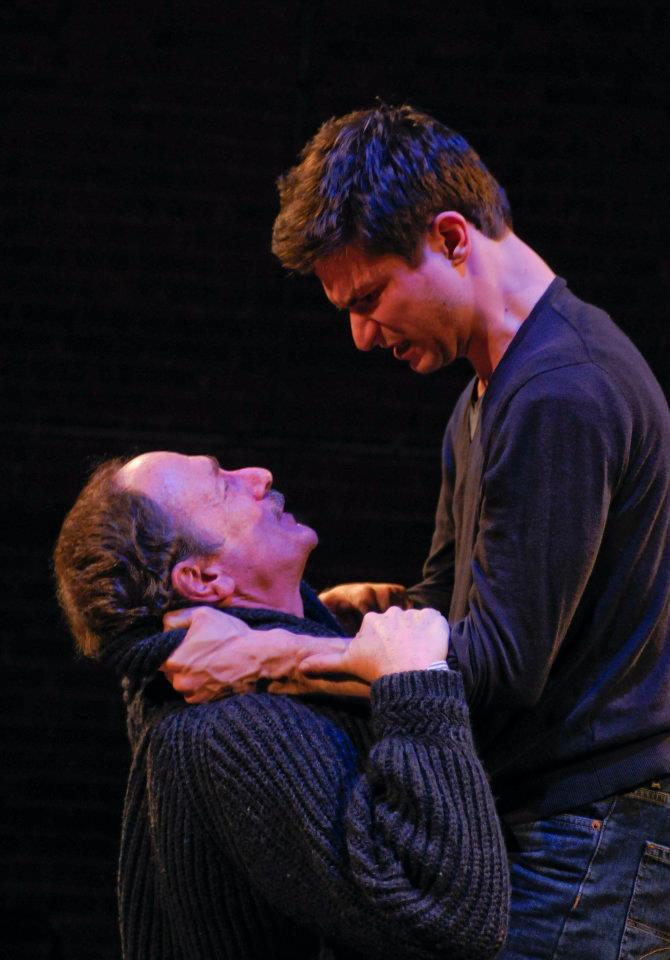A Number by Caryl Churchill, Whistler in the Dark, The Factory Theatre, 1/20/12-2/4/12, (in repertory with Fen by Caryl Churchill), http://www.whistlerinthedark.com/productions/wantedsomething.html.
Reviewed by Becca Kidwell
(Boston, MA) If you were/are a parent, what would you do if you had a chance to fix the mistakes you made raising your child? As a child, what would you do if your parents told you that you were not their original child, but a new, improved version made to fix the mistakes they made with their first child? Caryl Churchill’s play, A Number deals with a controversial matter: cloning. Since the Dolly the sheep was cloned in the late nineties, fear and wonder has surrounded the possibility of cloning a human being. This play speculates on what might result from such a procedure and the repercussions of such a decision upon a father and his son.
Unlike Caryl Churchill’s earlier works that focused on feminism and class issues, A Number, written in 2002, seems to be a departure from her militant “shock value” to a more subtle narrative. The man and the boy remain nameless and could be any father and son in society, but they are not the main characters. The moral, ethical, and social implications of the father’s actions press upon the father and his children until they must answer the simplest of questions “are you happy?”
A stark set of a hardwood floor, a chair, and a sofa, cleverly designed by Mac Young to transform into another set for Whistler in the Dark’s other production, Fen provides a blank canvas for words and actions to be sent out and absorbed. At the beginning of the play, the father, played by Mark Cohen, tries to reason with his son (Danny Bryck) who has just found out that he is one of “a number” of sons that were part of a cloning experiment. The boy grapples with the surreal nature of this fate and how this affects his identity and individuality and even what it means for him to be a replacement for his father’s dead son; his father explains that the experiment was only meant to replace his son who died in a car crash. The father tries to salvage the situation by suggesting that they can sue the organization that performed the procedure. The boy might have eventually accepted this story—if it was the truth.
But it’s not. The father’s “original” son did not die but was abandoned by his father when he turned out to be “broken”. This reality leads to the tragic unraveling of their family and the realization by the father that perhaps he never was a part of the solution, but was a part of the problem.
Danny Bryck should get the best “multiple personality” acting award for his roles in this play as three of the sons and his previous work as multiple characters in Cymbeline and Breaking the Code. In addition to the written characters, Bryck provides distinctions between each of the three sons in small subtle ways that make his plight believable as two copies and an original of the same boy. At the same time, he remains uniform in that the origin can be seen through the different personalities and that each son is affected primarily by his environment and not his genetics. Mark Cohen portrays the weak, cowardly father. Not particularly a likeable character, as his intentions always lie within his own interests, Cohen provides a frailty and a humanity, which allows the audience to sympathize with, if not understand his actions. This characteristic provides a vital role in keeping the audience connected to this two-person play.
What if parents could find a mold is perfect but the children are not? What if the problem is not the mold at all, but the person who molds the creation? Whistler in the Dark’s production will leave you with “a number” of questions.

